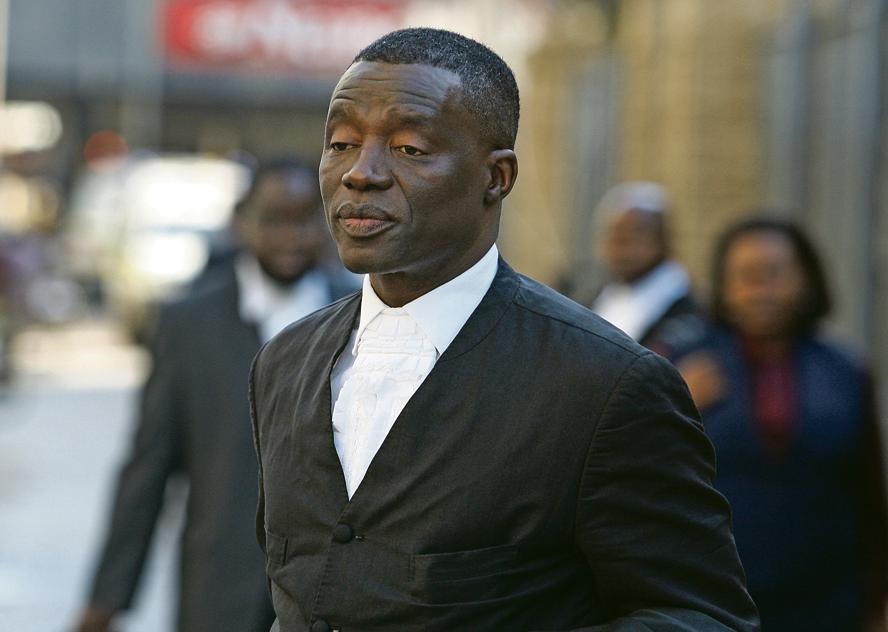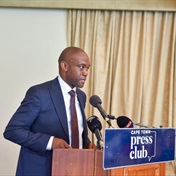
The reasons given by the Judicial Service Commission (JSC) for rejecting Advocate Gcina Malindi’s application for judicial office demonstrate how precarious the position of an activist lawyer has become.
They betray a lack of appreciation of the unique conditions placed by apartheid on the African majority.
Because of the real and perceived sins of the ANC and its leaders, the moral and image crisis of the former liberation movement is causing many in our society to question the integrity of people, such as Malindi, who joined the struggle as members of the ANC.
We respect the JSC’s constitutional role. We acknowledge that its deliberations are confidential and include issues that are not made public.
We are even mindful that in that debate, different viewpoints may have been expressed.
The debate must start with what has been disclosed.
Advocate Dumisa Ntsebeza, speaking on behalf of the JSC, gave no reasons for Malindi not being appointed. But he hinted at two possibilities.
First, the JSC “robustly debated” about a “cooling-off period” from Malindi’s high political office and, second, the fact that he is cited in divorce proceedings involving Tokyo Sexwale.
If Malindi was rejected for lack of qualification or appropriate experience, we would accept it, even if we do not agree with the decision. But it is the “proximity” to politics that is the subject of our concern.
First, Malindi hardly occupied any high political office. Second, this notion of a “cooling-off” period has no application in this case.
All his life, he has fought against the well-documented brutality and injustice of apartheid.
One does not “cool off” from one’s commitment to justice.
The real question is whether the applicant’s views are consistent with the Constitution and whether that individual has personal integrity.
Judges must meet the standard contained in section 174(1) of the Constitution, which requires a judicial candidate to be “fit and proper”.
Section 174(2) speaks of the “need for the judiciary to reflect broadly the racial and gender composition of South Africa” as a factor to be considered when judges are appointed.
We presume that the JSC’s reason was that Malindi’s proximity – at least in time – to high political office rendered him neither fit nor proper to occupy judicial office. We contest this conclusion and its justification.
Malindi was a political activist before he was an advocate. His history is not that of a career politician for narrow personal gain.
Unlike some who question him, all he earned was torture, suffering and incarceration on Robben Island.
In the early days of the JSC, and considering the lawyers with political links who were appointed in those days, political activism would have been considered an attribute worthy of elevation to the apex of the legal profession.
Judges with wider life experiences are capable of resisting the ever present temptation of judicial populism.
Judicial independence requires independence, not just from one form of power, but all forms of power.
We do not write to extol Malindi’s legal qualifications and experience.
His CV is now a matter of public record. Nor are we castigating the JSC or questioning its integrity or the suitability of those it recommended for appointment.
Our focus is limited. We focus on the aspects that convey what we see as the stigmatisation and criminalisation of the anti-apartheid struggle, a call many black South Africans had no choice but to heed.
Regardless of party political affiliation, we must forever resist the temptation to equate the struggle for freedom and justice with that of ensuring the continued survival of the injustice of white minority rule, the fallacy of white supremacy and the dehumanisation of black people.
Should the holding of high political office in an organisation such as the ANC – for years a liberation movement – disqualify one for judicial appointment?
Does one’s commitment to the struggle that culminated in our celebrated constitutional dispensation suddenly make one less worthy to protect and serve the very same dispensation for which they sacrificed their lives?
Under apartheid, those few black people who became lawyers were exposed to the harsh reality that the law was sometimes a smokescreen – the judges operated under the facade of the law, but, in reality, cases were decided by politics.
Advocate Bram Fischer was morally offended by the system of apartheid. And he broke the law as a result.
To comply with the law would have destroyed his own sense of morality. Nelson Mandela would have probably served as a small-time lawyer or local chief, but the system so appalled him that he chose politics.
Other people made different choices. Former Chief Justice Arthur Chaskalson, the giant of human rights litigation in the 1980s, chose to pursue the struggle for justice through law.
While that choice may have been available to Chaskalson, it was not to political activist Duma Nokwe. We might never know what legal heights he would have reached had South Africa been a democratic country.
Former Constitutional Court Judge Albie Sachs could not practise his chosen profession under apartheid and so chose the path of politics.
Finally, former Deputy Chief Justice Dikgang Moseneke was deputy president of the Pan Africanist Congress while practising as an advocate.
Law and the politics of liberation have always been inseparable. This was stated by Malindi in his response to questions about his “proximity” to politics.
Malindi’s case, like that of Nokwe, the late Chief Justice Pius Langa and Moseneke, is also a unique one in that their sacrifices were not only confined to their role as lawyers, but from their early teens.
Long before their prolific legal careers, they gave their lives to the struggle for freedom and justice.
Those with a commitment to social justice had no choice but to join the struggle. To suggest that judicial appointment requires them to “cool off” from this commitment would be counter-revolutionary.
This reality confronted the Constitutional Court when the SA Rugby Football Union (Sarfu) challenged former president Nelson Mandela over his decision to appoint a commission of inquiry into rugby.
Louis Luyt, then the president of Sarfu, challenged Mandela in court.
When the matter came before the Constitutional Court, Luyt asked for the recusal of at least 10 of the members of the court on the grounds that their historical links with the ANC rendered them unsuitable to adjudicate the case.
This claim was absurd, responded the court, based on three core propositions.
First, the mere fact that “a judge may have engaged in political activity prior to appointment to the bench is not uncommon in most, if not all, democracies, including our own”, the court pointed out.
In the light of our history, this should not have come as a surprise.
Second, upon appointment, judges must surrender and relinquish their political office.
Third, in any event, it is not a requirement of our constitutional system that judges must hold no political views.
Indeed, to set that as a baseline requirement brings another risk. Judges would then be disconnected from their world and their own reality.
Furthermore, “a judge who is so remote from the world that she or he has no [political] views would hardly be qualified to sit as a judge”.
We should end where we started. Malindi’s political activism was the inevitable outcome of the times and his life experience.
In a different era, a long and selfless fight for justice would have been considered worthy of judicial appointment. Our judges, we would like to believe, should, simultaneously, transcend and be embedded in the societal and political conditions of their time.
While they cannot judge based on politics or their personal preferences, they cannot be divorced from their own reality – the reality of both the majority and of all South Africans.
When, on the rare occasion, a candidate with such a firm grasp of the law and our social circumstances, such as Malindi, makes himself available for judicial appointment, it seems most desirable that they should be appointed or, at least, that their history in the struggle for justice should not be a factor that disqualifies them.
Otherwise, the sacrifices made by activist lawyers will have been in vain.
It is our hope that Malindi will make himself available again for judicial consideration and that the JSC will revisit its position on candidates holding political office or with a history of a commitment to the anti-apartheid struggle.
Sikhakhane and Ngcukaitobi are advocates in Johannesburg
TALK TO US
Do you think the JSC should consider candidates’ political backgrounds?
SMS us on 35697 using the keyword JUDGE. Please include your name and province. SMSes cost R1.50




 Publications
Publications
 Partners
Partners























